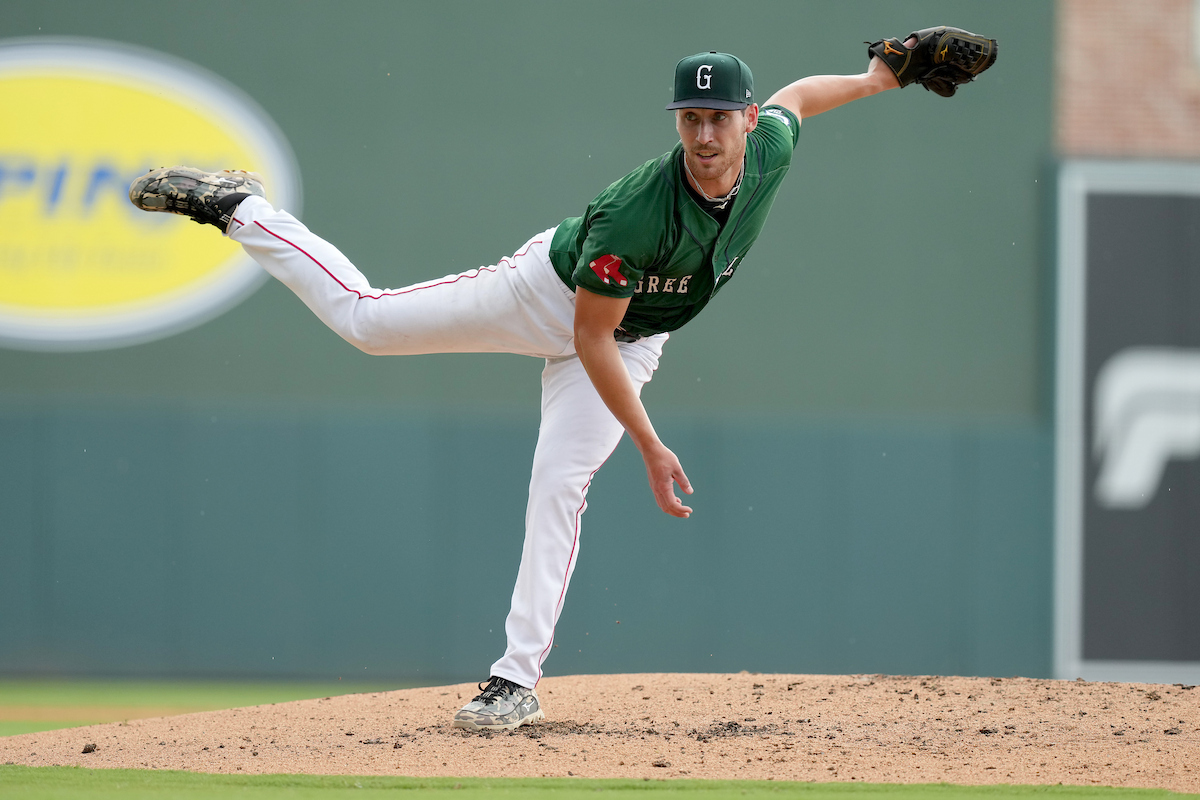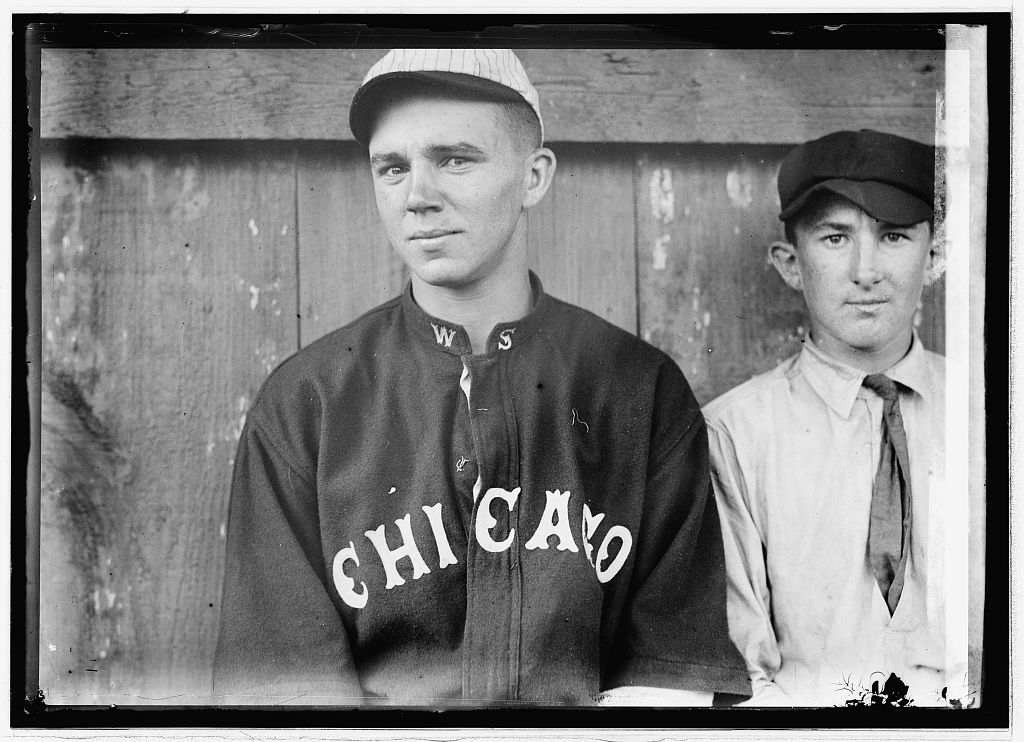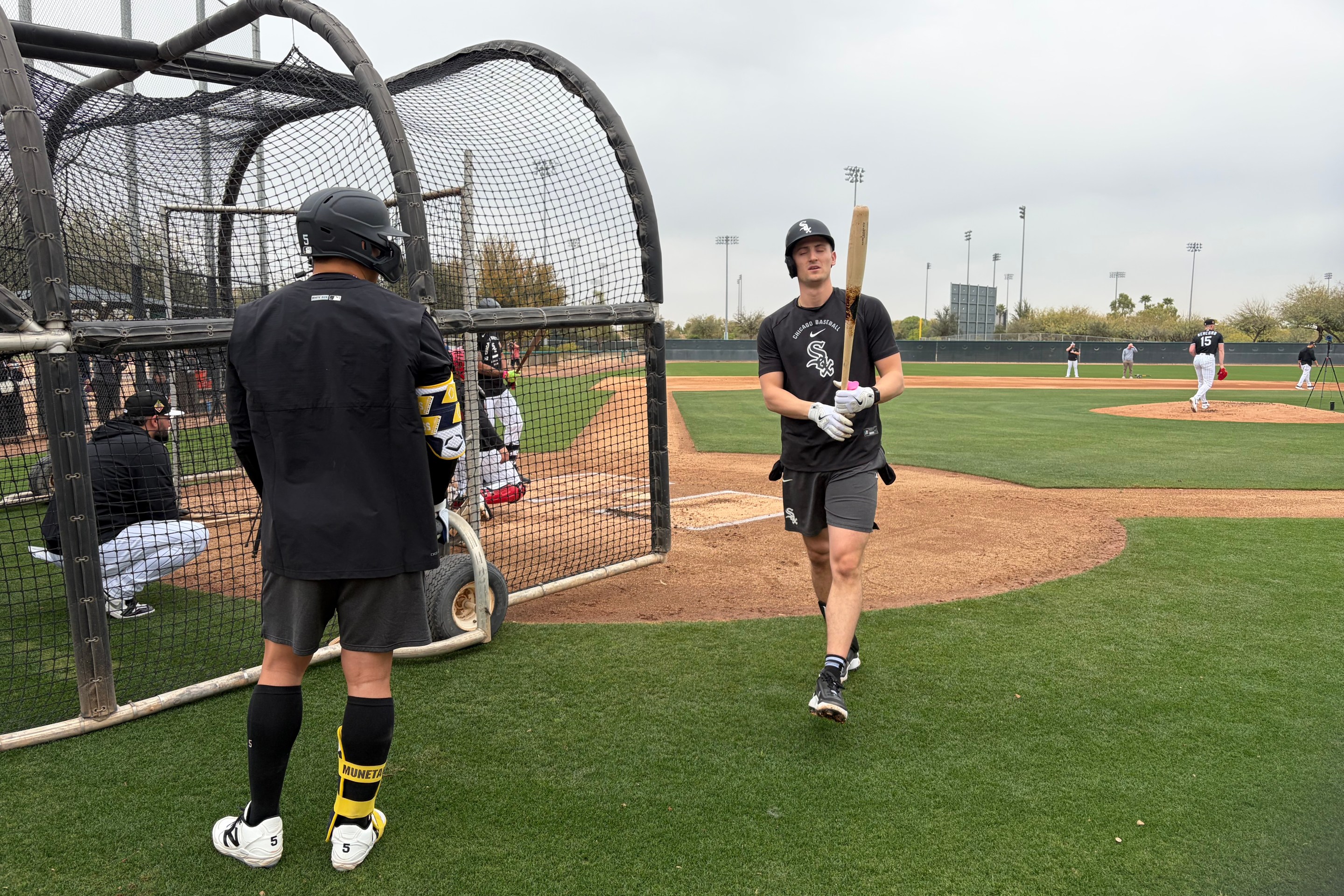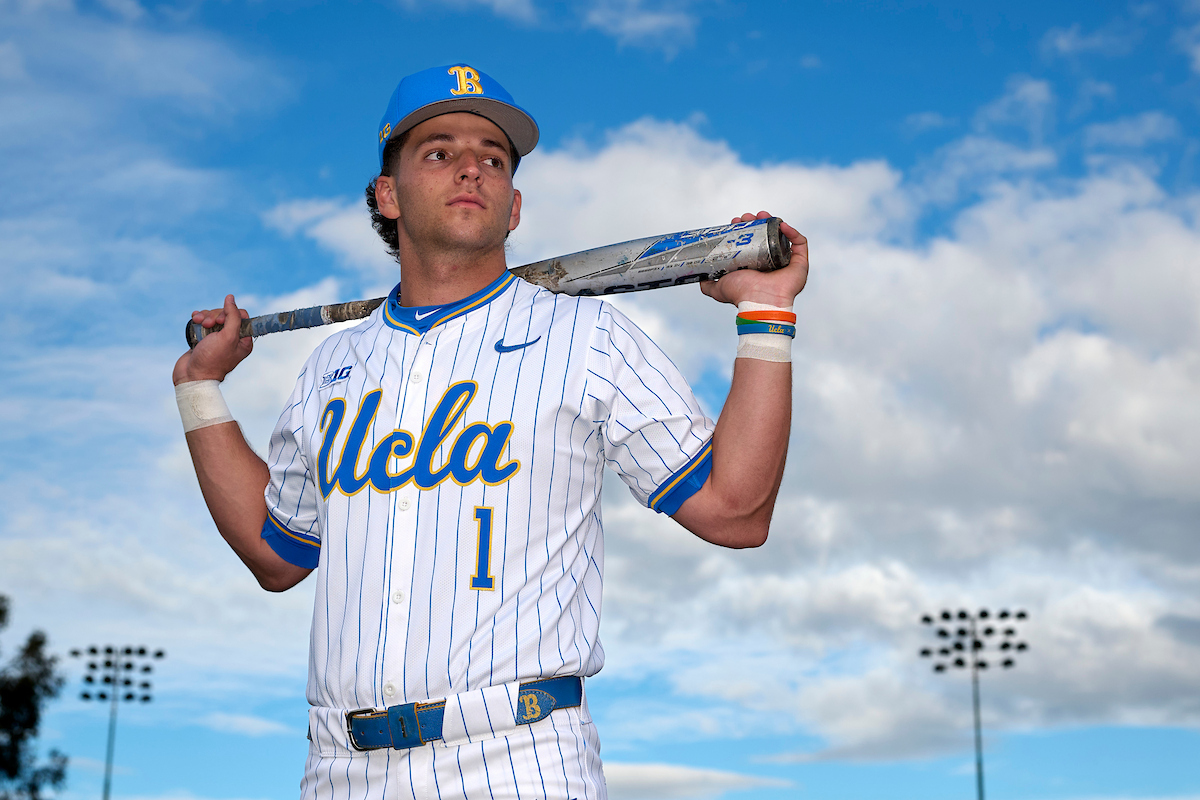When the White Sox make one of their top baseball operations executives available for public comment, there's no reason to really say no. Not there was a little bit of a question on what David Keller was supposed to talk about Tuesday.
A special assistant to general manager Chris Getz tasked with overhauling White Sox international operations since he was hired roughly a year ago, most of Keller's handiwork won't be official for years from now.
"Pre-signing period deals are not something that are legal within MLB, so I can't really comment on any specific players," Keller reminded, which did not get him out of facing least one direct question about Francys Romero's report that the White Sox are expected to sign Dominican prospect Braston Basker for $6 million for their 2030 international free agent (IFA) class. He unsurprisingly declined to comment.
More privately, the White Sox see Basker as the latest of signs they are making inroads toward restoring their presence in the Dominican Republic, after specializing in older, more major league-ready and pricier Cuban players under the previous front office regime. For now, they can chalk up some of the aghast reaction to news that the Sox are scouting 12-year-olds to the lack of familiarity with the Dominican market that the last decade-plus has fostered, since all of Basker's peers for age and ability have similar unofficial agreements in place.
The concentration of professional players per capita for the DR is more than twice that of the most talent-rich US state, so Keller has spent much of his first year trying to restore a foothold.
"We've turned over our entire international staff, we've implemented a brand-new system and process that we believe, over time, if repeated consistently and well, is going to yield positive results for the White Sox," Keller said. "When I took the job there were a lot of relationships with trainers and agents in Latin America that were broken, and we had to go about mending fences and building positive relationships and making sure that when they thought about talented players and where they wanted to show them and sign them, that we were a team that they considered."
Re-planting the White Sox flag in long-abandoned international territory sounds a lot like the crux of what Marco Paddy was tasked with 14 years ago as the team tried to dig out from the under the David Wilder bonus-skimming scandal. But rather than a mediation on the cyclical nature of White Sox decay, Keller offered the changeup of lauding the objective data that his nigh-completely overhauled international scouting team is leveraging.
He expanded upon his previous mentions of the team fitting scouts with portable Trackman machines, to also detail that they are subscribing to data services to provide performance information on potential targets, and actually have an analyst employed to parse through all this information.
"Projection is a significant part of the job," Keller said. "You also have to know what the starting point is as well. In order to project accurately, you need to know what the starting point is and one of the things that objective data helps us with is telling us where the player is today, relative to his peers. Taking that baseline, and then utilizing the experience that myself and the rest of our staff has to project the player forward, that's how we go about it."
The same intensity of the international market that makes landing Basker for the 2030 class the result of a prior agreement falling through, also means that impact of any work by Keller, Louis Silverio, Adrian Puig and others is going to be far off from seeing the field. Every scout knows their work might wind up just being trade capital, but this goes beyond that. Internally, the Sox international scouting department views the signings that will be announced in January of 2027 as their first true class of the new staff, and at midseason, were optimistic about a wave of highly-ranked prospects beginning in 2028.
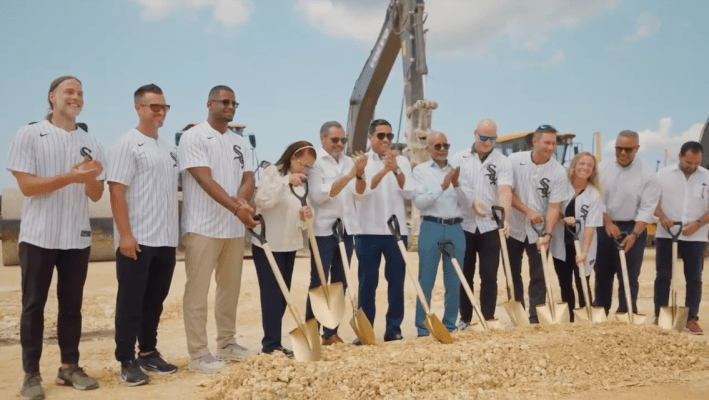
By then, the Sox will be placing those prospects in a brand-new international facility in Boca Chica, which is part of the current recruiting pitch. But that's not to say they haven't been grafting notable additions onto 2025 and 2026 classes that were mostly settled.
Keller highlighted Osniel Castillo, a 19-year-old Cuban outfielder who hit .375/.444/.542 in 15 games in the Dominican Summer League after being signed midseason, as well as 17-year-old Dominican right-hander Diego Perez, whom he believes has a feel for spin that outstrips his early production. More to the point, Keller pointed to Cuban pitchability right-hander Yobal Rodriguez and Dominican outfielder Frank Mieses both making the DSL All-Star team as 17-year-olds despite each of them signing for bonuses under $250.000.
Mieses hit .285/.410/.415 in 44 games in the DSL, and Rodríguez recorded a 2.97 ERA in 30 1/3 innings, but the latter could also wind up being remembered for the Sox rebuilding relationships in the Dominican Republic. Rodriguez trains alongside the brothers of Basker, which aided forming that connection. Basker also isn’t the only seven-figure Dominican prospect the Sox have been zeroing in on of recent. Infielder Ransiel Herrera, whom league sources expect could fetch a $4 million signing bonus, is now expected to be the Sox’ top target for the international class of 2029.
The Dominican Republic is where the plurality of international baseball talent comes from, Keller has a mandate to pursue greater returns from there, and that small island will probably provide the bulk of notable international updates for the White Sox for the foreseeable future. But if you're ever provided an opportunity to corner him, Keller can regale with observations from recent trips to the Bahamas and Colombia (which has become a hotbed for viewing Venezuelan prospects amid political turmoil), and said the team has hired a scout to cover the NPB for them in Japan, where the White Sox footprint has become so light that Keller cautioned against expecting any immediate results.
"I'm excited about where the organization is going; I hope that you all feel that. I hope that the fans feel that," Keller said. "For me, what is most exciting is Chris has talked about really fixing the foundation here. I can’t think of anything more foundational than player acquisition and player development, and obviously international player development is a big part of that."


